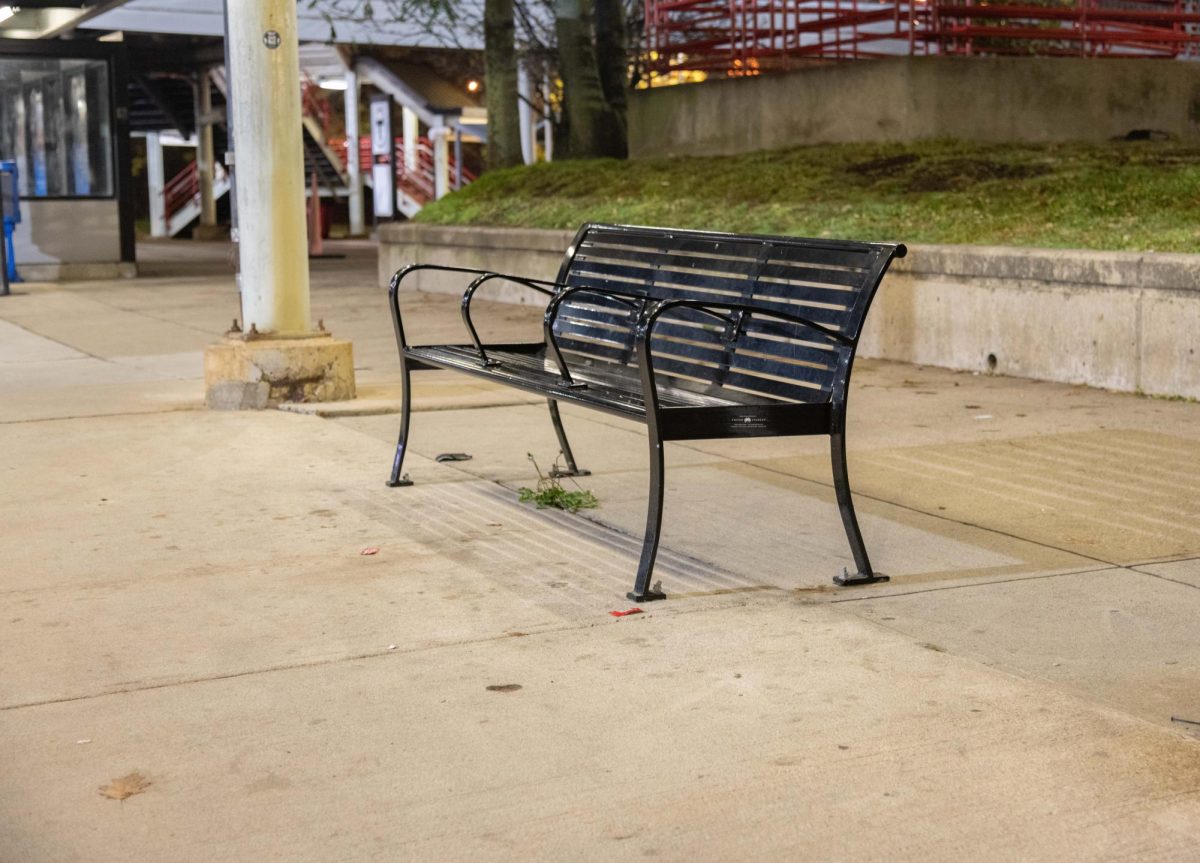The general public’s disdain for homeless people is palpable, and it’s reflected in the way our government treats poverty. Listening to the way people talk about homeless people is horrifying. The most common advice I hear about homeless people is to never give them money—they could be using it to buy drugs, of course. There’s also the recent trend on TikTok of people talking about microwaving a honey bun for ten minutes and throwing it at a homeless person. Why is the idea of giving a homeless person third-degree burns funny? The only explanation is that homeless people are an easy target—and they’re an easy target for government officials, too.
For years, Boston has been removing or dividing benches in its public parks and MBTA stations to prevent unhoused people from sleeping there. Not only does this make it harder for disabled or overweight people to access these locations, but it’s also ineffective—if you take the benches out of a T station, homeless people are just forced to sleep on the floor. It’s cruel, plain and simple.
Anti-shoplifting measures in department stores like Target, Walmart and Rite-Aid are just as cruel. The most common “high theft” products are electronics, of course, but I’ve also seen dozens of stores lock up necessities like soap, deodorant, and feminine hygiene products. The only explanation for this is greed—Target losing $3 for a stolen bottle of soap that someone obviously can’t access otherwise is not the end of the world, and even losing thousands of dollars worth of these products won’t make a dent in their sales.
These stores, and even some public buildings like libraries, often restrict bathroom access to prevent homeless people from using them. Some even color their lights blue to prevent people from seeing their veins in the hopes of discouraging drug use. This is dangerous: people are going to try to inject themselves with drugs anyways, regardless of whether it’s safe, and these practices also prevent people who may need to inject themselves with legal, safe medications like insulin from doing so. Again, this disproportionately punishes disabled people who need easy access to bathrooms. Ignoring all of that, though, don’t homeless people also have the right to use public bathrooms?
These practices prove that most people view homeless people as sub-human at best. Abject cruelty is the go-to treatment by the hands of police. Boston isn’t alone in its mistreatment of the poor, but it also has one of the biggest and most heavily funded police forces in the nation: the BPD budget, according to the ACLU, is nearly $400 million per year, 9 times more than the Library Department receives and 110 times more than the Office of Arts and Culture. [1]
The solution is obvious, and it’s been obvious for years: Funding needs to go toward preventing poverty instead of punishing it. Time and time again, funding punishment has been proven to cause more crime than it “fixes,” while simultaneously causing harm to the most disadvantaged populations. We need to focus on improving peoples’ material conditions, so they don’t need to sleep on benches, steal soap and use drugs in public bathrooms. Not only is it the economically smart thing to do, it’s also the kindest.
SOURCES:
[1] https://data.aclum.org/2021/05/06/more-of-the-same-unpacking-the-2022-boston-police-budget/



